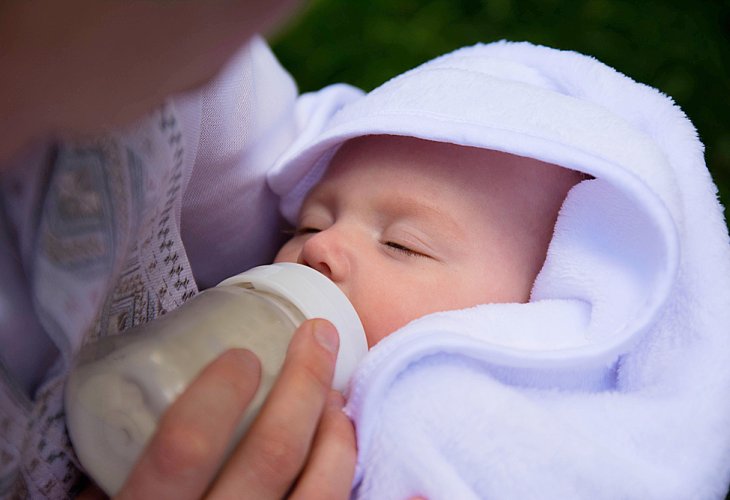Feeding Your One-Month-Old: Everything Parents Need to Know
How much should a one-month-old eat? How do you know if a nursing baby is getting enough, and how long can you wait between night feeds?
 (Photo: Shutterstock)
(Photo: Shutterstock)A newborn is always a bit of a "mystery" to their parents. A new life enters the world, and we need to learn how to care for them: bathe them, dress them, change their diapers, and of course – feed them. But how do we know exactly how much a one-month-old baby is supposed to eat?
In the natural course of things, a one-month-old baby should be nursing. When a baby is breastfeeding, they receive the best nourishment for them, usually in the amount needed. However, with breastfeeding, it's challenging to know exactly how much the baby has consumed. Therefore, it is important to follow several guidelines:
A baby up to the age of 4 months should eat every 3 hours on average. Some babies might demand food more frequently than every three hours, while others may be satisfied with a meal every 4 hours. It's recommended not to extend the time between meals to more than 4 hours. At night, however, you can wait 5 hours between meals if the baby is calm and sleeping.
How Do You Know If Your Baby Is Full?
The way to tell if a nursing baby has eaten enough is to check their weight at a checkup and ensure they are steadily gaining weight and not stalling or, heaven forbid, losing weight. Another method to ensure the baby is feeding well is to check their diapers – a nursing baby should provide about 6 wet diapers a day. If the diapers are dry, the baby might not be eating enough.
If the baby is not nursing but is being fed formula, it's possible to measure the precise amount of food they need. However, it's important to know that every baby is different, and like adults, some babies eat a little more, and others eat a little less. Gradually, you'll get to know your baby and understand what they need.
Generally, the question "how much does a one-month-old eat" isn't precise because the amount of food is measured by the baby's weight, not their age. As mentioned, a baby should eat 6-8 meals a day. To calculate how much they should eat per meal, use the following formula: baby's weight multiplied by 150 ml, divided by the number of meals throughout the day. This result is an average, of course, and the baby may eat less at one meal and make up for it at the next. It's possible they might demand slightly more or slightly less food than this amount.
Additionally, it is worth knowing that a healthy baby knows what they need. Don't insist on feeding the baby more than they want just because you "should." If a baby overfeeds, they are likely to "reward" you by spitting up excess food... Therefore, unless there is a specific medical issue requiring close monitoring of the baby's nutrition, simply check for yourself how much the baby wants to eat.
If the baby is nourished with breast milk, the right way to know whether they have eaten enough is an appropriate weight gain, according to weight and length percentiles, light urine output about once every 8 hours, and moist mouth membranes. The conventional formula feeding dosage in the first half-year of life is 120 to 150 ml per kg of body weight per day.
More on Feeding Your Baby:
What Does Your Baby Eat in Their First Year? Discover 6 Recommended Foods

